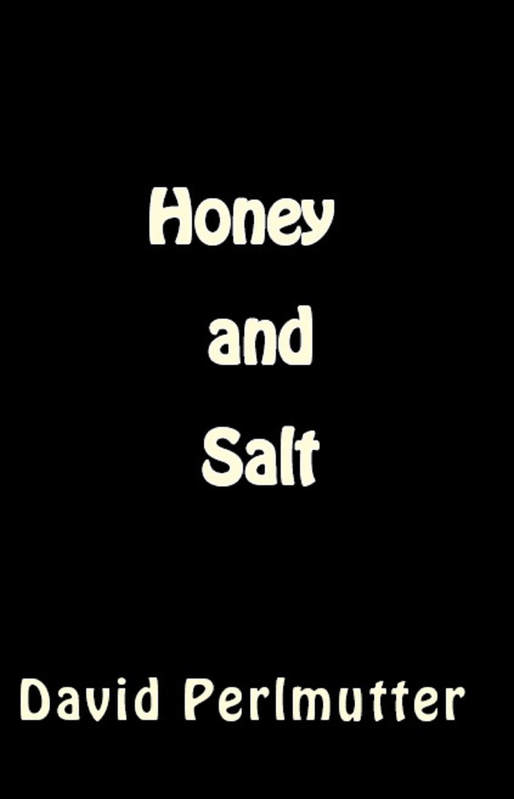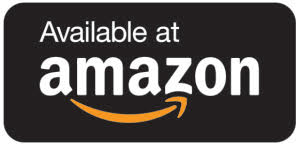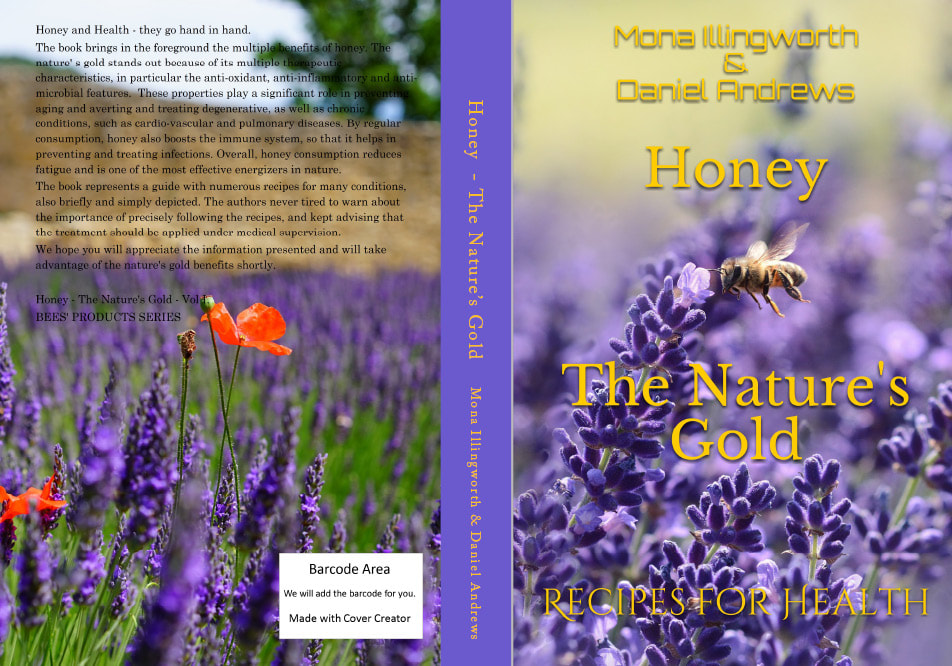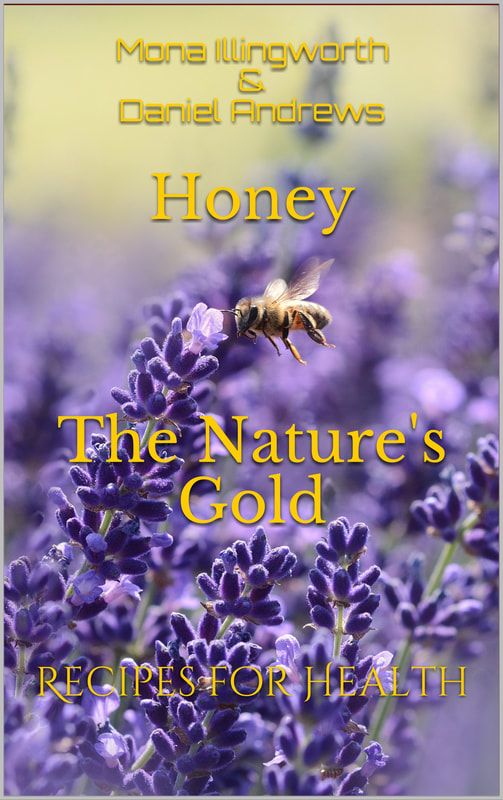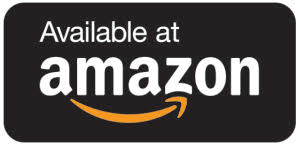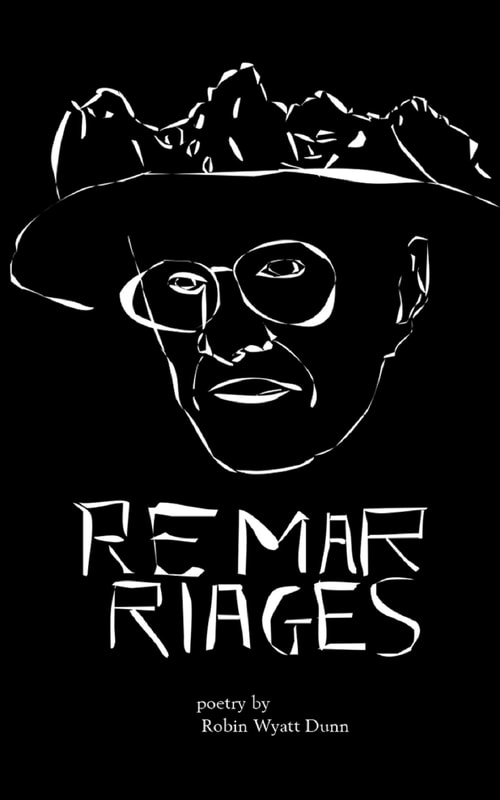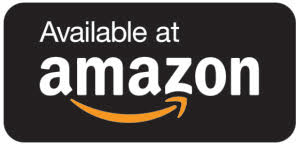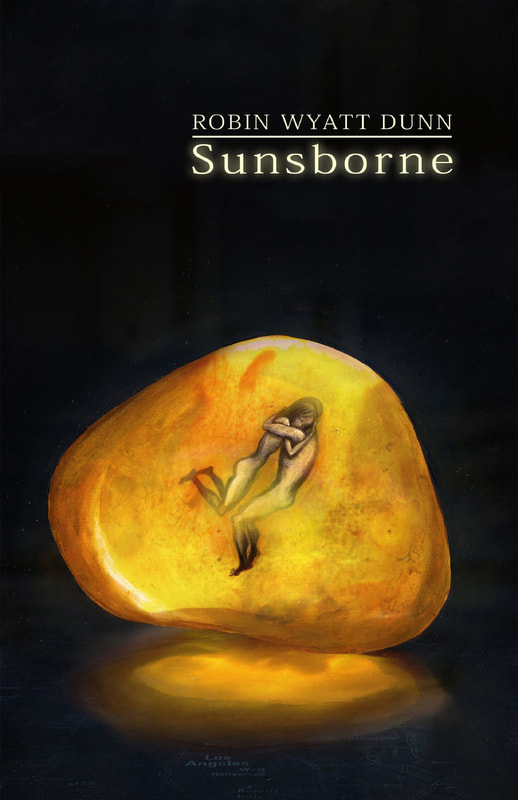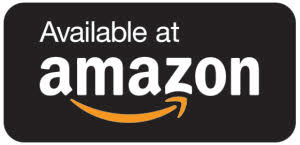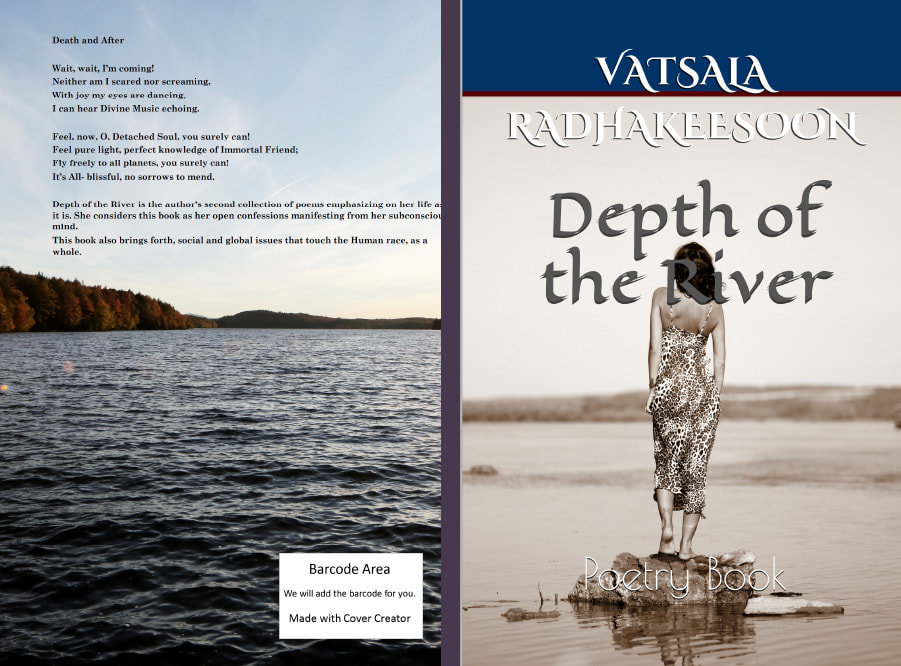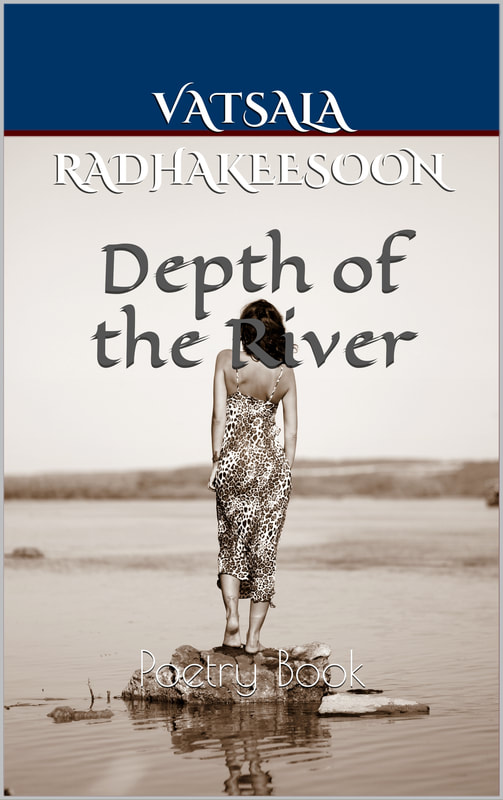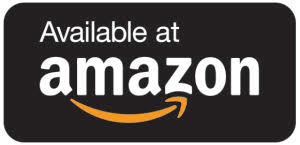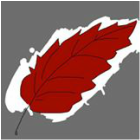|
Dear Readers and Authors, After a long struggle, the print issue of the magazine is LIVE! I want to express my gratitude to you all because both the first and the second issue of the magazine have had an amazing success. A heartfelt thank you should go to the authors because they have made it possible. Without them, Scarlet Leaf Review wouldn’t exist. I know I have said it many times so far, but I can't stress enough how important is their contribution. I know this third issue of the print magazine is a little late (all right, all right, a little more), yet, that was inevitable. What I can do is to promise that something like that never happens again (if force majeure doesn’t intrude upon us…). The first fall issue will not be printed before the 21st of September, and we aim for the same date from now on, as I’d like to offer a feasible and fixed time frame. As result, all issues will be out on the 21st. With the August issue, as you can see, the number of pages has increased. Now, it is 96. We have received many valuable submissions and we cannot turn them down just to keep the number of pages and the price low. Hopefully, this will not be a deterrent for our readers. It is very difficult to determine exactly how many pieces we can approve for a given month because of poems and their structure. With prose it is easy. We can calculate the number of words per page. That doesn't happen with poetry and poetry is dear to our heart. As result, submissions will be accepted for a season from now on, for instance fall. Thus, we can have two issues during that season with 48 or 60 pages, and the last issue of the season will include everything that didn't go through. Without further ado, I give you the third issue of Scarlet Leaf Review. I know you’ve been waiting… I know I have. Oh, I almost forgot the link: http://www.magcloud.com/browse/issue/1342436 Editor in Chief, Roxana Nastase
0 Comments
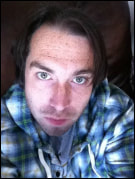 Heath Brougher is the poetry editor of Five 2 One Magazine. He has published two chapbooks, "A Curmudgeon Is Born" (Yellow Chair Press) and "Digging for Fire" (Stay Weird and Keep Publishing Co.). He is a Best of the Net Nominee and was the judge of Into the Void's 2016 Poetry Competition. His work has appeared in both print and online journals in 12 countries and has also been translated into Albanian. INTERVIEW WITH HEATH BROUGHERWelcome to Scarlet Leaf Review! Q: Tell us a little about yourself and your background. I was born and raised in York, PA. My mom was pregnant with me during the Three Mile Island crisis which was only a 45-minute drive away from where she lived. I went to the most horrible middle/high school in the world with a bunch of snobs who put me through a daily grind of humiliation and ridicule because I would not "conform" and sell out my Individuality like they did. I've been writing my entire life but didn't begin to submit my work for publication until 3 years ago (at the age of 34) so I've got a ton of notebooks filled up and 59 books written that all need typed up and edited. I've already copied up more than a thousand of them and it's barely made a dent in the plethora of notebooks, so I've got a lot of catching up to do. Q: Do you think that your school years have had an impact in your writing career? If so, what were you like at school? Most definitely. As I said, I went to the snobbiest school in the state and had to deal with these scumbags on a daily basis. It was torture from 6th-12th grade. Writing was a great solace for me back then and remains a great solace to me. Q: Were you good at English or like Einstein you excel now in a field that was a nightmare for you as a student? English was always my favorite class. The one good thing about the horribly stuck-up school that I went to was that from grades 8th-12th my English teachers were amazing and it was always their classes I looked forward to the most. I was one of the few moronic American kids who actually went to school to learn things. I also had some really great history teachers along the way as well. I excelled at history because of my dad, who has a masters degree in history and pretty much shoved it down my throat as long as I can remember. Even as a little kid he'd tell me about certain events or make me watch certain documentaries and movies, which, of course I didn't like at the time because I was a kid and just wanted to play, but it came in really handy once I got to middle/high school and aced every history test I took. I'm still very grateful for it. Q: What are your future ambitions for your writing career? To have fun and help people along the way. My goal is to bring down the elitist journals which judge who and what they accept by a person's bio instead of the actual work itself. I recently spoke to a poet who has been in this lit world for 40 years and they told me they had worked for journals which would just throw out a submission without reading it if the bio wasn't good enough. I read blind at both of the journals I worked for and the contest I judged and the anthology I edited. I'm the co-editor of Into the Void Magazine which won the 2017 Saboteur Award after only 4 issues. How'd we do it ? By reading blind! I want to see a day where all journals read blind and the voices which should be heard get the proper chance. I want to level the playing field of this lit world. Q: So, would you mind telling us what you have written so far? As far as books, Alien Buddha Press recently published my newest, titled "About Consciousness." I'd like to thank Red Focks for accepting it and putting in all the amazing artwork that goes along with some of the poems. My. other books include "A Curmudgeon is Born," "Digging for Fire," and "Your Noisy Eyes," all of which were published in 2016. Also, the Issue 5 of Into the Void Magazine was recently released and I'm extremely happy and proud to say that it's our best one yet! We didn't think we could possibly top Issue 4 but we did! Q: Where can we buy or see them? All but one of my books are available on Amazon.com as well as Yellow Chair Review's website, Stay Weird and Keep Writing's Website, and Alien Buddha Press' website. Q: What are you working on at the minute? What’s it about? I currently have 17 different books I'm trying to get typed up and edited but my main focus is on the most important book I've written or put together so far which is titled "To Burn in Torturous Algorithms" which introduces a style of writing I've been developing as far back as age 17 which I call Spiralism. That is the book I need to find the perfect home for. Q: When did you decide to become a poet? What was the decisive factor or you just took a pen and starting writing poems? There was never a decision. I've just been writing ever since I learned how to I guess. Q: How do you think you’ve evolved creatively? I began a 12-year hermitage years ago, which I am just coming out of, during which I removed all mirrors from my apartment just so I could mirror only my own thoughts and not be influenced by the insanity of society. During that seclusion, I came across many original thoughts and had many great Epiphanies. The only way I think I've really evolved as far as outside influence is, now having read the works of Felino Soriano, Heller Levinson, and Alan Britt, which may occasionally have a subconscious effect on my writing. Q: In your opinion, what is the hardest thing about writing? Submissions. I've grown so tired of reading submission guidelines and putting submissions together that I've just been focusing more on the books I'm working on. I just counted and I've sent out a total of 59 submission so far, this year. I used to try to get one out every day. Q: What book/s are you reading at present? I'm currently buried under 18 different books I told people I'd write reviews for. I feel bad that it's taking so long to get them finished because I have all of these other obligations to juggle. Q: Do you let the book stew – leave it for a month and then come back to it to edit? That's what I need to start doing. Two of the books I've published were thrown together in one night. Q: Tell us about the covers of your books. How did it/they come about? Well, with my first book "A Curmudgeon is Born" I actually came across the perfect cover before I was even done putting the book together. Thankfully Dianne Borsenik stepped in and saved the day by getting me the artist's phone number so I could call and ask permission to use the image. Another cover was done by Bree Bodnar, and with my latest book I was given a chance to pick from a plethora of different images thanks to Red Focks, who is a great poet and artist. Q: What would you say are the main advantages and disadvantages of self-publishing against being published or the other way around? I've never self-published anything of my books. I've always submitted to the presses. I do have two books I was thinking about self-publishing because they're just so "out there" that I can't foresee a press ever accepting one of them. Q: Do you have any advice for other authors on how to market their books? Get out there and read. It's a great way to meet new people and get your work noticed. I've done several readings in Great Britain and a bunch of different U.S. cities. Q: Did you do a press release, Goodreads book launch or anything else to promote your work and did it work? I haven't yet but I'm planning a full-on assault of promotion once "To Burn in Torturous Algorithms" is accepted. Or, rather, IF it is ever accepted. I told myself I'd submit it for a year and a half and if they're no takers then I'll just self-publish it. It's the most important book I've put together so far and if I self-published it I wouldn't have to hold back on certain aspects of Spiralism which I've had to eliminate in order to make this first book more palatable to editors. Q: What is your favorite motivational phrase? What is your favorite positive saying? "Insist on yourself. Never imitate." Ralph Waldo Emerson Thank you very much for taking the time out of your busy schedule to take part in this interview. Everything works fine now.
Enjoy! IT SEEMS THAT WEEBLY HAS TECHNICAL ISSUES. WHEN YOU CLICK ON CATEGORIES YOU GET TO BLANK PAGES.
I AM WITH THEM RIGHT NOW TO SOLVE THIS MATTER!!! Dear Readers and Authors,
With four days delay, the August issue is finally live. Three weird accidents and several Internet interruptions led to this delay but... better later than never. The good news is that during the period July 15th and August 18th, there have been 128,343 visits on the site, which shows the quality of the literary works featured in this magazine. Without too much ado, I will give you AUGUST ISSUE. Don't forget, if you hover with your mouse over Aug 2017, a drop-down menu will appear and you can choose to read poems, short-stories, non-fiction or a play. If you glance on the right of the page, you will find categories. Under categories, you will see the names of the authors and you can click on a specific name to read that author's creation(s). Well, let's the game begins. Have fun and leave comments (they mean a lot for an author). Have a nice journey in an interesting literary world! SLR Staff INTERVIEW WITH DAVID PERLMUTTERDavid Perlmutter is a freelance writer based in Winnipeg, Manitoba, Canada. He is the author of America Toons In: A History of Television Animation (McFarland and Co.), The Singular Adventures Of Jefferson Ball (Chupa Cabra House), The Pups (Booklocker.com), Certain Private Conversations and Other Stories (Aurora Publishing) Orthicon; or, the History of a Bad Idea (Linkville Press, forthcoming), and The Encyclopedia of American Animated Cartoon Series (Rowman and Littlefield, forthcoming.) He can be reached on Facebook at David Perlmutter-Writer, Twitter at @DKPLJW1, and Tumblr at The Musings of David Perlmutter (yesdavidperlmutterfan). Welcome to Scarlet Leaf Review! Q: Tell us a little about yourself and your background. I was born in 1980 in Winnipeg, Manitoba, Canada, and have lived there my entire life. I have Bachelor’s and Masters degrees in History and a Library Technician certification. Q: Do you think that your school years have had an impact in your writing career? If so, what were you like at school? Yes, they did. I had my first exposure to writing in school, and enjoyed doing it. I also encountered many of the writers who first influenced me in school reading, on my own and for assignments. Since I was rather shy and retiring then, as now, I tended to do a lot more reading then most people on average, and I probably still do. Q: Were you good at English or like Einstein you excel now in a field that was a nightmare for you as a student? English was one of my better subjects, along with History. Q: What are your future ambitions for your writing career? To keep writing and publishing books in fiction and non-fiction forms on a regular basis, as long as I can find publishers willing to underwrite me in this endeavors. Q: So, would you mind telling us what you have written so far? America Toons In: A History of Television Animation (McFarland and Co., 2014) The Singular Adventures Of Jefferson Ball (Chupa Cabra House, 2014) The Pups (Booklocker.com, originally 2009), Certain Private Conversations and Other Stories (Aurora Publishing, 2013) Honey and Salt (Scarlet Leaf Publishing, 2017) Orthicon; or, the History of a Bad Idea (Linkville Press, forthcoming) The Encyclopedia of American Animated Cartoon Series (Rowman and Littlefield, forthcoming) Q: Where can we buy or see them? Amazon, Abebooks and the various publisher’s websites. Q: What genre are your books and what draws you to this genre? In fiction, I write in science fiction, fantasy and horror. I find that these forms are not bound to the same sorts of restrictions in terms of expectations that other genres have. Also, they allow me to write narratives and characters that are close in feel and style to the animated television programs that have been my primary cultural influence. Q: Which actor/actress would you like to see playing the lead character from your most recent book? I could name some names, but, because they are television animation voice actors, you’re not likely to have heard of any of them, so why bother? Q: How much research do you do for your books? A lot! Whatever it is, it has to be as accurate as possible, or else the people and things depicted in it will give you hell. Even for stuff that isn’t “real” in the first place. Q: When did you decide to become a writer and why? What was the principal reason for taking up a pen (metaphorical speaking) and write that first sentence? As soon as I realized that animated cartoons were made by actual people, and were not documentary depictions of real places I wanted to visit more than once every week. Q: Do you write full-time or part-time? Do you have a special time to write or do you write every day, 5 days a week or as and when? Part when I am at work at my library job, full otherwise. No particular time, just when I feel I can fit it in without being interrupted. Q: Where do your ideas come from? Or is it just the spur of the moment, a special feeling you experience or a specific conjuncture that offers you inspiration? Some sort of union between what I watch on television and read, and the desire to fix any and all of the “mistakes” I felt had been made by the writers in doing their work. Q: How do you think you’ve evolved creatively? I have a stronger sense of moral purpose about my work than I used to do, as well as a stronger sense of humor, and a stronger sense that I seem to know about things other people don’t know about at all, since I have to explain some of the more obscure references I put into my work sometimes. Q: Do you work to an outline or plot or do you prefer just see where an idea takes you? For longer works I have an outline; for shorter things, I wing it as much as I can. Q: In your opinion, what is the hardest thing about writing? Not getting paid a regular and dependable weekly salary for doing it. Q: Now, what about the easiest thing about writing? Being the boss of everything and everybody I write about. Q: Do you ever get writer’s Block and if so do you have any tips on how to get through the dreaded writer’s block? Keep exposing yourself to new things culturally. The more you expose yourself to other people’s ideas, the more you’ll figure out how to do those same things yourself. Q: Do you read much and if so who are your favorite authors? For your own reading, do you prefer eBooks or traditional paper/hard back books? I read considerably. I am a paper book person, and will be so forever. Particular favorite authors who have influenced me are many, but a small list would include: Robert Bloch, Jack London, Mark Twain, Philip Jose Farmer, Ray Bradbury, Philip K. Dick, Isaac Asimov, Sherwood Anderson, Lawrence Block, H.P. Lovecraft, Clark Ashton Smith, Arthur Machen, Algernon Blackwood, M.R. James, Joe Lansdale and Ring Lardner Sr. Q: What book/s are you reading at present? The collected stories of Isaac Bashevis Singer, in the three volume Library of America edition. Q: Do you proofread/edit all your own books or do you get someone to do that for you? I do much of my own proofreading and editing, with some assistance from my mother on non-fiction works. Q: Do you let the book stew – leave it for a month and then come back to it to edit? I let it stew when I first draft it. When it’s finished the way I want it like that, that’s when I type. Q: Who edited your last book and how did you select him/her? It was edited by an editor chosen by the publisher. Q: Tell us about the covers of your books. How did it/they come about? I try to tell the publisher what I want, and they try to find an artist who can make it work. Q: Do you think that the cover plays an important part in the buying process? Not terribly, but it can sway some people, so it can’t be glossed over. Q: What would you say are the main advantages and disadvantages of self-publishing against being published or the other way around? With self-publishing, you have to promote everything yourself, and that’s hard if you are, like me, an introverted, insecure person at heart. With mainstream publishing, they take care of promotion, and you just have to do what they tell you to do, and you let them, because it’s their business and not yours. Q: What are your thoughts on good/bad reviews? Good reviews help you get what you want as a writer. Bad reviews ruin entire careers. Q: Did you get interviewed by local press/radio for your book launch? No. I have been strongly ignored by the media in Winnipeg for most of my writing career so far, although I don’t think I did or said anything that caused that. Q: Why do you think that other well written books just don’t sell? Because the publisher didn’t help the author to promote their work enough in a positive way. Or, if they published it themselves, they didn’t do a good enough job promoting it. Q: How do you relax? Reading. Q: What is your favorite book and why? “The Call of the Wild” by Jack London. The book that truly turned me on to adult reading, and the author whose life and work I have admired the most, and whose commitment to sparse but vivid storytelling and social justice I have attempted to honor in my own work. Q: Where can you see yourself in 5 years-time? Doing what I am doing right now- reading, writing and working. Possibly I might get paid more, better and more often as well. Q: What advice would you give to your younger self? You will get through all of this. Do not be bewildered by any of it- it is all normal and commonplace. Q: Which famous person, living or dead would you like to meet and why? Dr. Martin Luther King, Jr. He seems to me to be the only person in the modern world who completely understood the true meaning of peace and racial brotherhood. We all could have learned a great deal more from him had he not been so tragically taken from us. Q: If you could have been the original author of any book, what would it have been and why? Any of Jack London’s. He wrote anything and everything he felt like doing, and he did it without being pretentious, because he was a man from low origins who nevertheless was more perceptive that most of his more learned contemporaries. Q: What advice would you give to aspiring writers? Keep doing it. You won’t get it the first time you do it, but eventually it’ll come, and you’ll be glad it did. Q: Where do you see publishing going in the future? Wherever it wants. I’ll have to keep up with it regardless. Q: How can readers discover more about you and you work? Blog: yesdavidperlmutterfan (Tumblr) Facebook: David Perlmutter- Writer Twitter: @DKPLJW1 LInkedin: David Perlmutter Amazon Author Page: Thank you very much for taking the time out of your busy schedule to take part in this interview. NEW RELEASE: Bravery comes in all forms: fighting bullies and fighting your own demons. Honey and Salt is a superhero novella that will draw you in the just fight of a few super heroines. The story is packed with action and humor. Their quest against evil superheroes and against their own weaknesses is refreshing. You can identify with them and embrace their battles. INTERVIEW WITH MONA ILLINGWORTH & DANIEL ANDREWS 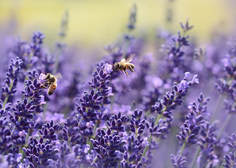 Both Mona Illingworth and Daniel Andrews underwent a medical doctor training. Nonetheless, they have managed to retain a strong and fulfilling relationship with the nature, connection which began in the country during early childhood. In order to hand over their knowledge, as well as the humankind thousands-years old in-formation about the nature, they created the Bees' Products Series. "Honey - The Nature's Gold Recipes for Health" represents the first volume. The second volume is already in the making. They hope this series will make a difference in people's life. Welcome to Scarlet Leaf Review! Q: Tell us a little about yourself and your background. Mona: Hi! Thank you so much for having Daniel and me for an interview. We do appreciate it. Now, there are so many things to be said about myself. Let me see! First of all, I’m a young woman, full of energy and ideas. I love reading, cooking, travelling, but above all, I love nature in all its wonderful expressions. Together with Daniel, I enjoy taking long walks on fields, through forests, or beaches. These are long walks, for we often stop to admire a tiny insect, the fresh blossom of a flower or to follow the majestic flight of a bird. My professional field is a bit less poetic, for as a medical doctor, I deal daily with various ailments of the people. However, the relief we manage to bring to people many times represent a satisfaction in itself. Daniel: My background is pretty similar to Mona’s: we both spent lots of time at the countryside during our childhood, and we chose the same profession. As Mona has pointed out, we indulge in lengthy strolls, and we like to acknowledge everything around us. We share the same passion for reading, travelling and cooking, and I also enjoy a good old-fashioned fight on my computer. Q: So, would you mind telling us what you have written so far? Mona: We have started with a pretty interesting and fully packed with information book about honey. The name says it all: Honey The Nature’s Gold Recipes for Health. Anyway, putting together so many recipes for such a high number of ailments required a good deal of time and energy. It was sometimes a challenge to synthesize the information, but also a joy to write down so many captivating facts about these tiny insects, capable of such a complex and intricate social organization. Daniel: We are particularly satisfied of having included the precautions and adverse effects in the recipes, so that these can be safely used. That was an absent part in the naturist books I laid hand until now. And we found the inclusion of preparation time and difficulty, as well as the layout of the recipes as a whole quite helpful. Actually, this book is the first from a series regarding bees’ products Q: What are your future ambitions for your writing career? Mona: We are planning to continue the book series about bees. There are so many fascinating things to share about them and their products! Daniel: We are also playing with the idea of including practical and fashionable things in one of our future books, such as a fairly elaborated cosmetic book based on natural ingredients. Later on, there are so many other topics we are keen to tap into. Q: Where can we buy or see them? Mona: Well, you can find our book as a print in kindle format on Amazon. Daniel: And Ingram Spark is also a good place to start. Q: What are you working on at the minute? What’s it about? Mona: As promised in our book, Honey The Nature’s Gold, we have begun the next book in the series. Daniel: It is also about bees’ products, and for the time being we are in the research phase. Q: What genre are your books and what draws you to this genre? Mona: I’m afraid I’m a bit eclectic when it comes to books. I enjoy as much a Balzac’s book, as I savor an Agatha Christie’s book or one of Asimov’s books. I think I’m the inquiring type and I just like to have a finger in every pie. Daniel: I too enjoy lots of genres of books: crimes, science-fiction, fantasy, and classic books just to name a few. Like Mona I prefer to keep an open mind and gather as many information as possible. And to enjoy the things in the process! Q: When did you decide to become a writer and why? What was the principal reason for taking up a pen (metaphorical speaking) and write that first sentence? Mona: Daniel and I had often remarked how much had been lost or simply ignored from the ancient wisdom and connection with nature. Daniel: There are actually so many wonderful things in the nature to be known and used. Mona and I, as medical doctors and keepers of some of this knowledge, we decided to offer parts of these to other people so that hopefully a larger and larger number of people will benefit from it. Q: Tell us about the covers of your books. How did it come about? Mona: From the beginning, we agreed there had to be a bee on the cover, for the bees are, actually, the essential actors when it comes to honey. Daniel: And as we both love lavender, a field with lots of it seemed the best idea. We also find the poppies on the back cover a nice touch. Q: Do you think that the cover plays an important part in the buying process? Mona: Some would say it is fundamental. I like a good cover too, but this has never been the main incentive for buying a book. I’ m more interested in the title of the book. Daniel: I think for many it is quite important a good, catchy cover. Indeed, it is the very first thing one sees, before reading the title. So, accordingly, and also for the sake of our book’s beauty, we spent much time on deciding the right cover. And the right one we found! Q: What are your thoughts on good/bad reviews? Mona: Good reviews are the vital food for any writer. We hope we’ll enjoy lots of them. Now, regarding the bad ones, what can I say? People are very different. What’s pretty good for one is uninteresting for the next one, or even unpalatable for another one. Daniel: I totally agree with Mona. However, I’m pretty confident we’ll receive our fair share of good reviews. Q: Is there anything else you would like to add that I haven’t included? Mona: We truly believe our series, and particularly our first book, Honey The Nature’s Gold Recipes for Health, will cover a missing segment in the natural medicine domain, specifically the bridge between it and the modern medicine. And I hope you’ll enjoy it and benefit from it. Daniel: Well, I have a single thing to add: Enjoy! Thank you very much for taking the time out of your busy schedule to take part in this interview. NEW BOOK RELEASE: Honey and Health - they go hand in hand. The book brings in the foreground the multiple benefits of honey. The nature' s gold stands out because of its multiple therapeutic characteristics, in particular the anti-oxidant, anti-inflammatory and anti-microbial features. These properties play a significant role in preventing aging and averting and treating degenerative, as well as chronic conditions, such as cardio-vascular and pulmonary diseases. By regular consumption, honey also boosts the immune system, so that it helps in preventing and treating infections. Overall, honey consumption reduces fatigue and is one of the most effective energizers in nature. The book represents a guide with numerous recipes for many conditions, also briefly and simply depicted. The authors never tired to warn about the importance of precisely following the recipes, and kept advising that the treatment should be applied under medical supervision. We hope you will appreciate the information presented and will take advantage of the nature's gold benefits shortly. LITERATURE IS THE ATOMIC BOMB BY ROBIN WYATT DUNN 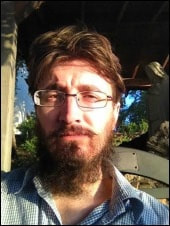 Robin Wyatt Dunn lives in a state of desperation engineered by late capitalism, within which his mind is a mere subset of a much larger hallucination wherein men are machines, machines are men, and the world and everything in it are mere dreams whose eddies and currents poets can channel briefly but cannot control. Perhaps it goes without saying that he lives in Los Angeles. LITERATURE IS THE ATOMIC BOMB Literature is the atomic bomb, launched every day, and devastating cities and empires across the earth. It cannot be stopped. Like the bomb, literature-people find they have very little room to negotiate: this power backs us into a corner, and we, frothing at the mouth, can only point to our pen. Still, North Korea and Iran aren't stupid: they know literature (and the atomic bomb) is the only thing that will save them in this dog eat dog world, and since I am fortunate to be a nuclear scientist, I give my knowledge away freely (or sometimes for five bucks) to the world, in the hopes that we will all become more heavily armed with dangerous weapons, and so that, if not my children (I have none), then at least some fortunate brat somewhere will coalesce his mighty and small brain around a deserving comeuppance: even if he be fired and enslaved like me, forced to work for his daily bread by uncaring tyrants, who rob, cheat and humiliate him, even if this unlucky brat has all manners of horrors visited upon him, I will have provided him with the red button, which, like the gadget in Will Smith's eager little Hollywood thumb, can wipe not only individual minds but whole continents clean, denuding them of hypocrisy, lies, and fear. I sell the brave stuff; like whiskey, brewed at a reasonable rate, and like Jack Daniels, "each day we make it we'll make it the best we can." TWO NEW POETRY BOOKS BY ROBIN WYATT DUNN “Remarriages” is for the outcast and the disappointed. Dark poems riding wildly through the mind of an angry man who both loves and hates the world. The words reveal a bitter struggle to reconcile with the horrors and the violence inherent in the world. Dunn’s poetry is psychological and raw, with a delicate balance between light and darkness. Dunn’s poems are valiant in expressing the darkness many fear, yet others embrace. Some of his poems nudge the reader to take time to examine the bizarre existence we call life. Roxana Nastase Sunsborne pitches darkly into another world. Often the world and characters is hazy, but ''Sunsborne'' is a true picture of the reality, conflict and tensions. In the midst of a conflict torn situation there is love. Robin Wyatt Dunn presents an uncanny story of past and present, darkness and light. His way with language and its thick opacity create a stunning impact on the mind. If you are looking for ''meanings'', leave it. If you are looking for legerdemain stunts, leave it. But if you are looking for a fabulous world, in mythic settings, here it is, in the manner that only Dunn can achieve - credulity climaxing into incredible and fascinating story. Ananya S Guha Shillong, INDIA. 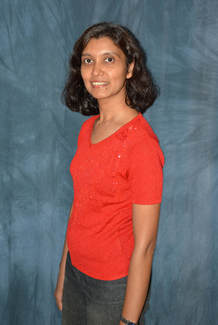 Born in Mauritius in 1977, Vatsala Radhakeesoon has had a keen interest in poetry-writing since the age of 14. Her poems have been previously published in various local and international printed and online newspapers, journals, magazines, anthologies and blogs. She is the representative of Immagine and Poesia (Italy based artistic movement) for Mauritius. Vatsala considers Poetry to be her first love , her friend, guide and confidant. As a teenager in the early 1990’s ,her love for poetry mainly originated from the lyrics of songs of the French Canadian singer, Roch Voisine , Australian singer, Jason Donovan and British singer Phil Collins. Her mother being a Hindi teacher and her best teacher of poetry has also been her inspiration for poetry-writing. The great poets of English Literature, William Blake, T.S Eliot, Emily Dickinson, Maya Angelou and Carol Ann Duffy have had an influence on her works. Depth of the River is her second collection of poems following When Solitude Speaks (2013). Vatsala Radhakeesoon is a MBA graduate from Management College of Southern Africa and is currently self-employed. She lives at Rose-Hill, Mauritius and continues to write poems in English, Mauritian Kreol (Kreol Morisien) , French and Hindi. INTERVIEW WITH VATSALA RADHAKEESOON Welcome to Scarlet Leaf Review! Q: Tell us a little about yourself and your background. I was born on 17 October 1977 at Curepipe, the coldest and rainiest town of Mauritius. But I have been brought up and live at Rose-Hill, one of the warmest and business-centered towns of the island. I’m the youngest of a family of 4 children. My late parents were both Hindi teachers and they maintained much discipline at home. They emphasized much on formal and informal education as well as reading books in the main languages that were taught in Mauritius. I was a pupil of St Enfant Jesus RCA , primary school and a student of Loreto Convent Rose-Hill, secondary school – both schools founded initially by Christian missionaries. At tertiary level, I did a MBA from Management College of Southern Africa. I’m currently self-employed and also an independent interviewer and translator for Setu journal. Q: Do you think that your school years have had an impact in your writing career? If so, what were you like at school? Yes indeed. When I was in Standard One (first year) of primary school), my mother who was also my teacher taught me a short poem in Hindi referring to a little girl called Manjul Rani . Then I had to learn this poem by heart and recite it in front of everyone during the school artistic event .Since then I enjoyed reading and reciting poems in English, French and Hindi. When I was in Form I (first year of secondary school) our English teacher, Sister Antonia originally an Irish nun taught us a poem entitled The Lovely Unicorn. It was a poem referring to Noah’s Ark. We had to learn the poem and recite it during the prize giving ceremony programme at school. So all these led to my writing of poems a few years later when I was in Form 4 (fourth year of secondary school). At school I was shy and mostly love to study. I could hardly express myself verbally or voice out. So my pen and paper helped me to express my thoughts, views and feelings as a means to unburden my confused teenage mind. Q: Were you good at English or like Einstein you excel now in a field that was a nightmare for you as a student? Well, I have always loved English language. I enjoyed mostly the grammar related parts as everything was systematic and well organized. But I didn’t like all genres of English literature as the critical analysis of novels were too tedious for me. However I loved studying poetry and plays (drama). Later on I chose Science as main subjects. But English as a language has always been compulsory in all Mauritian schools at all levels. When I was in HSC (Higher School Certificate) (last year of Secondary school), I enjoyed the General Paper classes , that were part of English class. General paper helped us to do research in all fields that is Arts, Science, Economics, politics and much more and then write essays regarding a vast range of issues. Q: What are your future ambitions for your writing career? I wish to keep writing more poetry books and also short stories books in various languages that I know that is English, French, Hindi and Kreol. I also wish to translate the works of other authors in the field of Literature. Q: Which poets have inspired you and how? What was their impact on your work or your literary perspective? I have been much inspired by William Blake, T.S Elliot, Victor Hugo, Maya Angelou and Emily Dickinson. From Blake’s Songs of Innocence and Experience, I have learnt that poetry can be written beautifully in a simple language. T.S Eliot and Victor Hugo have inspired me to write philosophical poems. Maya Angelou has inspired me to write feminist poems and voice out without fear as an independent woman. Emily Dickinson’s poems have taught me the beauty of writing in solitude. Q: So, would you mind telling us what you have written so far? My first poetry book is entitled When Solitude Speaks. It was published in 2013 by the sponsorship of Ministry of Arts and Culture, Mauritius. This book is a self- published one .It consists of a selection of poems that I’ve written between the ages of 14 to 35. Some of my poems have been published in Immagine and Poesia anthology 2016 and 2017 (Italy). My poem Being Myself with Maurtian Kreol, French and Hindi translations has appeared in Women, Wit and Wisdom Anthology 2017 (India). My second poetry book entitled Depth of the River has been published in July 2017 by Scarlet Leaf Publishing House, Canada. It consists of a series of philosophical, spiritual, and emotional poems. Q: Where can we buy or see them? When Solitude Speaks – Available at Bookcourt bookshops Mauritius Immagine and Poesia anthology 2016 , 2017 can be read for free by downloading from immaginepoesia.jimdo.com Women, Wit and Wisdom anthology can be ordered by Author’s Press India (New Delhi) Depth of the River – Available on Amazon.com, Amazon UK, Amazon France, Amazon India, Amazon Italy, Amazon Australia. Kindle price : $2.99 Paperback : $10 Q: What are you working on at the minute? What’s it about? I’m actually working on my first poetry book in French. It basically consists of philosophical poems. Q: What genre are your books and what draws you to this genre? Basically I’m much into poetry. Poetry’s musicality, its ability to covey feelings thoughts and facts in a concise way and delivering powerful messages instantly draw me to this particular genre. Q: When did you decide to become a poet? What was the decisive factor or you just took a pen and starting writing poems? I decided to become a poet at the age of 14 in August 1992. I have always been a music lover. And the songs sung by my favourite singer, Roch Voisine (French Canadian singer) mesmerized me. I loved the lyrics of his French songs , Hélène , L’Idole, La L’égende D’Oochigeas and those of his English songs such as I’ll always be there, Jamie’s Girl and others . So this compelled me to start writing poems. Q: What makes you write? What’s the force behind taking your pen (or your keyboard) and put verses down? Basically I feel my inspiration comes from God – the Divine energy. Then the words in my mind and soul begin to flow on paper. Q: Where do your ideas come from? Or is it just the spur of the moment, a special feeling you experience or a specific conjuncture that offers you inspiration? A word, a conversation with someone, an event, a friend, a song, a movie, observing Nature and moments of solitude compel me to write poems. Q: How do you think you’ve evolved creatively? During my 25 years of poetry writing, contemporary poetry has evolved as well, so have I creatively. When I started writing poems I was using a simple language and merely free verse style. But with continuous poetry -writing practice and reading more poetry books I feel I use more complex words, and alter the styles from free verse to rhyming or at times blend both. I no longer follow the trends or rules. I’ve acquired my own voice and my freedom in writing. Q: In your opinion, what is the hardest thing about writing? To write for a particular cause and within word limit. This hinders the freedom of a writer. A writer is a person who loves freedom; his/her space and hates inhibitions or shackles of various sorts. Confining a writer to word limit or asking him to write for a particular cause is like stopping his spontaneous flow of feelings, views and ideas. It destroys the writer’s individuality. I have written some specific cause related poems but after writing them I have always felt that I didn’t give the best of myself and I felt something imposed on me. Q: Now, what about the easiest thing about writing? The easiest thing is that once we become a writer, it means we have created our special space, comfort zone. So whatever happens in life we can find solace from writing. It’s a cozy place where no one can interfere, or really judge us. Q: Do you ever get writer’s Block and if so do you have any tips on how to get through the dreaded writer’s block? When I was much younger I did get it. But now I don’t really get writer’s block. My tips for writer’s block are: Never panic. If you can’t write just stop and take a deep breath. Go for a walk, cook something in the kitchen or do some routine household tasks. Read a book by other writer. Gradually writer’s block will disappear. Writer’s block is just the product of a stressed mind. A relaxed mind produces better works of Arts. Q: Do you read much and if so who are your favorite authors? For your own reading, do you prefer eBooks or traditional paper/hard back books? Yes I do read. My favourite Mauritian poets are Anoucheka Gangabissoon, and Cyril Luximan. Among the classics I like William Blake, T.S Eliot, and Emily Dickinson. Among the contemporary poets of foreign countries, I like the poems by Scott Thomas Outlar,, Sunil Sharma and Santosh Bakaya. Among the novelists, I’m a big fan of Mitch Albom and Paulo Coelho. I like both e books and traditional books as both help us to perform the same action, that is reading and to cultivate our minds. Q: What book/s are you reading at present? I’m re-reading Selected Poems of T.S Eliot. Q: Do you proofread/edit all your own books or do you get someone to do that for you? I first edit it myself. Then I give to someone else to have a look. Q: Do you let the book stew – leave it for a month and then come back to it to edit?Yes as times I take a break after finishing my book manuscript and edit it much later. This helps me to go through my poems with a different perception. Q: Tell us about the covers of your books. How did it/they come about? The cover of my first book consists of the Maurtian sea with a single boat sailing. This represents the title of the book When Solitude Speaks. For my second book, Depth of the River, the cover consists of lady walking amidst the river. This represents the poem The River’s Poetess featured in the book. Q: Do you think that the cover plays an important part in the buying process? Yes the cover can play an important role. An attractive cover definitely catches the customers’ eyes and makes him/her willing to do a purchase and read the book. Q: What would you say are the main advantages and disadvantages of self-publishing against being published or the other way around? Self -publishing helps the author to maintain complete control of his/her book ie. in terms of marketing, sales and profit in his/her own country. But self-publishing doesn’t make it easy to market and sell internationally. It is difficult and stressful for a writer to handle both his writing and marketing all alone. Publishing with a publisher gives a book a more professional look. The marketing and sales responsibilities are shared by both the author and the publisher. So sales and marketing become much an adventure instead of dreaded duties. However publishing with a publisher, at times restricts the freedom of a writer as he/she cannot decide what to do with the book independently. Q: How do you market your books, if you do the marketing yourself? I market through Facebook, individual Facebook messages, Whats App, e-mails, newspapers, Literary T.V and radio programmes and book signing at bookshops. Q: Would you or do you use a PR agency? I haven’t done it for my previous book but may be in future I will do it. Q: Do you have any advice for other authors on how to market their books? The fastest way to reach out a large number of people is social media. So it is worthwhile to keep marketing through it. Then, marketing is an ongoing process. Ups and down will be there but we must keep on marketing every week or every month. Never be discouraged. If one strategy doesn’t work, try another one. Always have an innovative and positive approach. Q: Any amusing story about marketing books that happened to you? Once when I was doing a book signing a child who was passing by took one copy of my book and didn’t let go of it. This compelled the parents to buy it. Q: Did you do a press release, Goodreads book launch or anything else to promote your work and did it work? I haven’t tried so far. But I’m willing to do it for my second book that has been recently published. Q: Did you get interviewed by local press/radio for your book launch? Yes for my first poetry book When Solitude Speaks I got interviewed by the local newspapers L’Express, Le Défi and literary T.V programmes Passerelles and Portraits D’artistes. Q: Is there any marketing technique you used that had an immediate impact on your sales figures? Marketing through Facebook and doing book signing have helped in the past. Q: Did you make any marketing mistakes or is there anything you would avoid in future? Yes, previously I was informing everyone about my book but gradually I have realized that all people are not interested in buying and reading books. So now I use the marketing technique of proper market segmentation and select the potential customers properly. Q: Why do you think that other well written books just don’t sell? Tough question! Based on my Marketing knowledge as a MBA person and following the great marketing guru, professor and author Philip Kotler’s advice, I think sales depend on the marketing approach. When we talk about sales it refers to the business world. When we study sales and Marketing, we learn that business is all about building a long term business relations with the customers. Logically in the writing world, most writers simply let the publishing companies do the marketing and sales job. But we must realize that the publisher doesn’t have only our books to sell. He/she has to care about other authors too. So, well written books may not sell because many writers shy off and don’t like to reach out to customers and readers in a humane and friendly way. Many writers remain hostile to readers and do not make the effort of getting to know their readers even at book festivals or other literary events. Yes, we need our solitude to write but if we want our books to sell we must adopt a friendly and humane approach to others and not walk with the aura of ego that we are writers, we have published thousands of books and keep thinking that people are compelled to buy our books. Many good books don’t sell because the writers don’t take the responsibility of being involved in sales and marketing themselves. Q: What do you think of “trailers” for books? I think they are good means of marketing books in order to attract the right readers and customers. Q: Do you think that giving books away free works and why? Sometimes it may work, sometimes it may not. Providing books for free may enable those who can’t afford to buy it, be able to read it. It can be an incentive for the reader to read the book. The negative aspect of this is that when we give books for free, readers adopt ‘the taking for granted attitude’ and they do not value the book as a valuable work of Arts and the writer’s hard work. So we must bring a balance between providing books for free and selling them Q: How do you relax? Since, I’m a great music lover. Music is my best means of relaxation. I like pop music, classical music, spiritual songs and I’m open to all other forms of music. Then I like to go for walks, observe nature and go to the seaside whenever I can. Q: What is your favorite motivational phrase? What is your favorite positive saying? “To let go” – in the Buddhist way. Q: What is your favorite book and why? When it comes to poetry, my favourite book is Four Quartets by T.S Eliot. I like that book because it centers on deep philosophical views. When it comes to novels, my favourite book is Jane Eyre by Charlotte Bronte. This book shows the strength of a woman and teaches women to keep fighting for their rights and never give up. Never fall in the trap of self-pity. Regarding plays, my favourite is The Glass Menagerie by Tennessee Williams as the playwright has shown a deep insight in human psychology. Q: What is your favorite quote? “I am no bird, and no net ensnares me: I am a free human being with an independent will.” Charlotte Bronte, Jane Eyre Q: Where can you see yourself in 5 years-time? Writing more books and exploring new horizons of spirituality and philosophy. Q: What advice would you give to your younger self? To keep reading so as to cultivate their minds. To bring a balance between the mundane and the spiritual in order to live happily. Q: Which famous person, living or dead would you like to meet and why? I would like to meet my favourite contemporary American author Mitch Albom . I’m mesmerized by all his novels as they really touch my soul. Q: What advice would you give to aspiring writers? Keep writing. Never be discouraged by rejection notes and other ups and down. Persevere and you will fulfill your mission as a writer. Q: Where do you see publishing going in the future? Since the world is IT oriented I see e-books being the future of publishing world. But paperback books will co-exist much as a luxury. Q: How can readers discover more about you and you work? Website: Amazon.com Link: https://www.amazon.com/gp/aw/d/B073ZKMKL4/ref=mp_s_a_1_1?ie=UTF8&qid=1500351060&sr=8-1&pi=AC_SX236_SY340_FMwebp_QL65&keywords=vatsala+Radhakeesoon&dpPI=1&dpID=51-jJ6lt7GL7ref=plSrch Facebook: http://www.facebook.com/Vatsala.D.Radhakeesoon Thank you very much for taking the time out of your busy schedule to take part in this interview. NEW RELEASE Death and After Wait, wait, I’m coming! Neither am I scared nor screaming, With joy my eyes are dancing, I can hear Divine Music echoing. Feel, now, O, Detached Soul, you surely can! Feel pure light, perfect knowledge of Immortal Friend; Fly freely to all planets, you surely can! It’s All- blissful, no sorrows to mend. Depth of the River is the author’s second collection of poems emphasizing on her life as it is. She considers this book as her open confessions manifesting from her subconscious mind. This book also brings forth, social and global issues that touch the Human race, as a whole. Through her poems, the poet has also pointed out that the connection to the Divine energy, that is God, is the best cure to all sufferings and the priceless means to recognizing real joy and leading a peaceful life. The poems in this book have been written by blending elements of modern and traditional poetry. Some have a rhyming pattern. Others are purely in free verse. |
ISSN 2369-8446
To bring joy to readers everywhere. Archives
June 2023
Categories
All
http://roxananastase.weebly.com/
|
